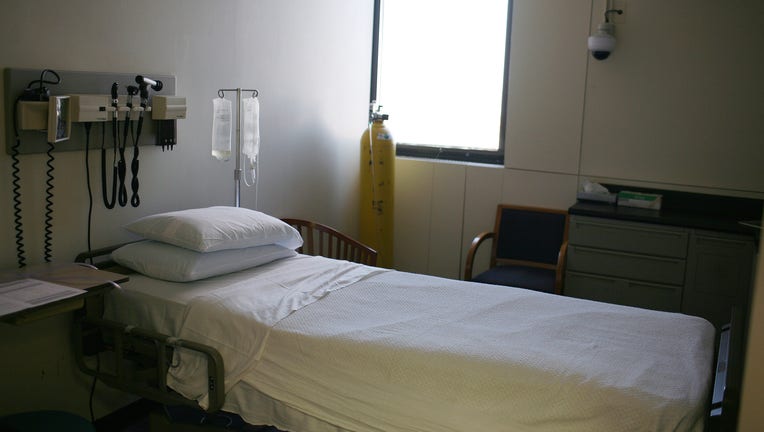20 rural Georgia hospitals at risk of closure, new report says

An empty hospital bed is shown in a file photo taken on October 2, 2016. (Photo by Andrew Lichtenstein/Corbis via Getty Images)
ATLANTA - A new report from the Center for Healthcare Quality and Payment Reform reveals that more than 700 rural hospitals across the United States—about one-third of all such facilities—are facing a serious threat of closure due to persistent financial challenges. Of those, over 300 are categorized as being at immediate risk of shutting down.
What we know:
The analysis highlights a troubling trend: nearly half of all rural hospitals operate at a loss when providing patient care. Healthcare delivery in small and remote communities is often more expensive, yet many insurance reimbursements fail to meet the actual costs of service. While some hospitals have been able to offset shortfalls through local tax support or government grants, these funding sources are uncertain and may not be sustainable in the long term.
In Georgia, 20 of the state’s 71 rural hospitals are considered at risk, and 10 are classified as being at immediate risk, according to the report. Since 2005, nine rural hospitals in Georgia have closed, underscoring the severity of the issue. Nationally, the trend has been similar, with nearly 200 rural hospitals closing their doors over the last two decades.
The situation worsened in 2023 and 2024, when more than one-third of rural hospitals nationwide reported overall financial losses, following the expiration of temporary federal support provided during the pandemic.
RELATED: Georgia's rural healthcare crisis: Lawmakers struggle to maintain hospital access
What they're saying:
Experts warn that closures in rural areas could have wide-reaching consequences beyond access to healthcare. In many small communities, the local hospital is the only source for critical services such as emergency care, diagnostic imaging, laboratory testing, and primary care. These hospitals often serve as economic anchors as well, supporting local industries such as agriculture, energy, and mining. Without accessible healthcare, these sectors may struggle to attract and retain a workforce, potentially impacting national food and energy supplies.
What's next:
The report emphasizes the urgent need for sustainable solutions to preserve healthcare access in rural communities and prevent a deeper crisis in both public health and rural economic stability.

